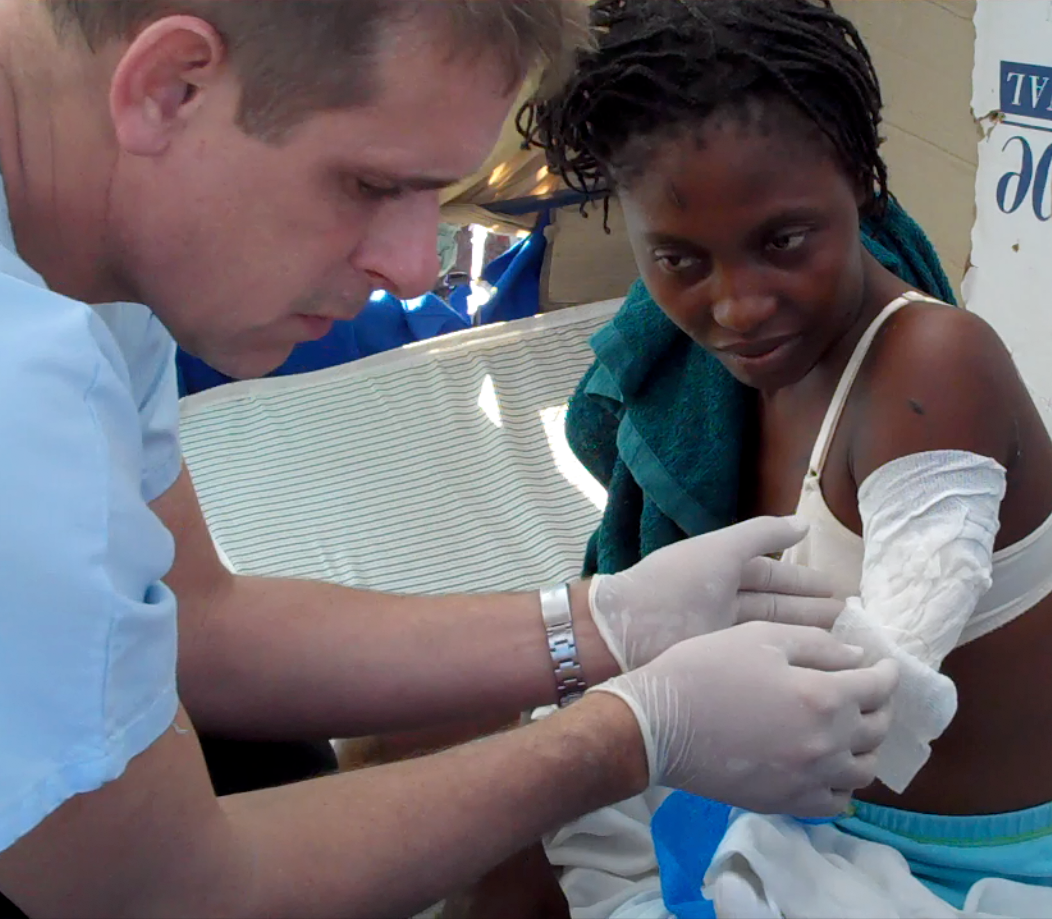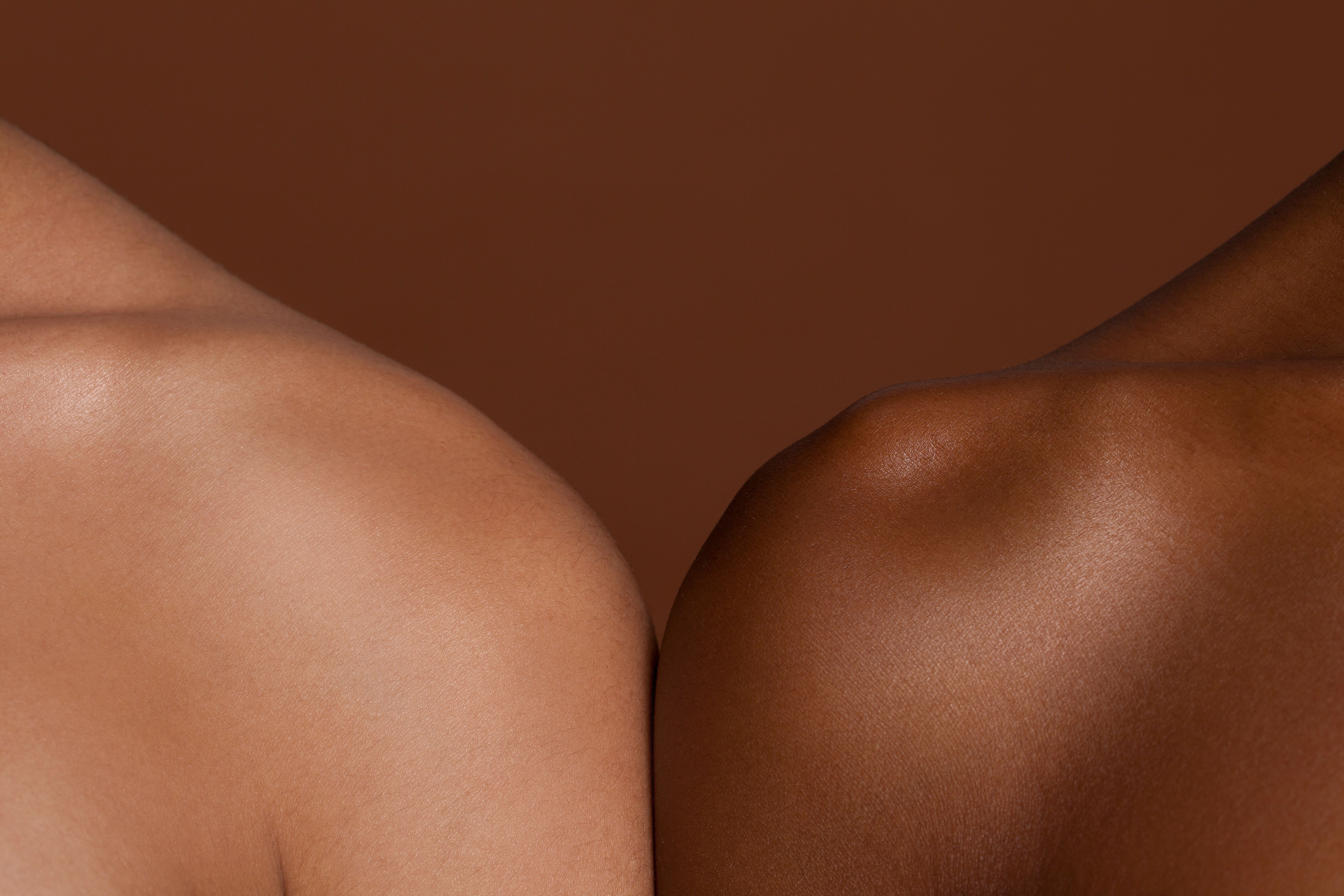- Case-Based Roundtable
- General Dermatology
- Eczema
- Chronic Hand Eczema
- Alopecia
- Aesthetics
- Vitiligo
- COVID-19
- Actinic Keratosis
- Precision Medicine and Biologics
- Rare Disease
- Wound Care
- Rosacea
- Psoriasis
- Psoriatic Arthritis
- Atopic Dermatitis
- Melasma
- NP and PA
- Skin Cancer
- Hidradenitis Suppurativa
- Drug Watch
- Pigmentary Disorders
- Acne
- Pediatric Dermatology
- Practice Management
- Prurigo Nodularis
- Buy-and-Bill
Article
Mission to Haiti: NYC derm raises funds, awareness for limb-loss patients
Author(s):
International report - Dermatologist David Colbert, M.D., left his busy New York City practice and journeyed to Haiti just weeks after January’s devastating earthquake to help in whatever ways he could.
International report - Dermatologist David Colbert, M.D., left his busy New York City practice and journeyed to Haiti just weeks after January’s devastating earthquake to help in whatever ways he could.
But it’s what he has done since the visit, to help the injured recover over the long term, that is making headlines. Dr. Colbert has launched a new foundation to raise funds to send prosthetic limbs and medical supplies to the quake-ravaged country.

Dermatologist David Colbert, M.D., changes the dressing for a young Haitian girl, Chantal, who lost an arm during January's 7.0 earthquake. (Photo: David Colbert, M.D.)
Dr. Colbert’s six-day visit in February turned into a brush-up course on woundcare and wound healing - particularly his work with some of the country’s estimated thousands of amputees, who have been left without long-term rehabilitative care and prosthetics.
“I did a fellowship on wound healing at Boston University as part of my dermatology training and several years of emergency room medicine during my training, so I felt comfortable going there and seeing trauma victims,” he says.
Many injuries
Dr. Colbert saw many injuries, as well as makeshift medical facilities, during his stay.
Many Haitians who suffered fractures during the quake were treated with external fixation, he says, which means that many children and adults have metal rods extending out from the skin to help stabilize their fractures.
The associated wounds often become irritated or infected, so having access to a physician experienced in woundcare and healing was very helpful, he says.
“When you put yourself in a camp with 600 people, and every other patient needs a dressing change - it is sort of a hybrid between being the general surgical intern taking care of amputees and then using my woundcare experience … to offer the best possible outcome in terms of infection and cleaning the wound and knowing when the sutures should come out,” Dr. Colbert says.
Dr. Colbert, who is fluent in French, says he communicated easily with the Haitians - even acting as a translator at times for U.S. doctors doing volunteer work in Haiti.
Emergency facilities
Dr. Colbert and his medical assistant, Paul Hogue, arrived in Haiti to find that old, large plantation houses had been converted into emergency operating facilities.
The makeshift hospitals were more like M.A.S.H. units, he says. People were sleeping around the hospital under tents and, sometimes, under sheets on the ground outside. People were afraid to go into buildings for fear the structures would collapse during aftershocks, he says.
The orthopedic surgeons are the true heroes in post-quake Haiti, Dr. Colbert says, because they are doing the much-needed amputations.
“You have to imagine that you are turning this big house, or former orphanage or former something, into operating rooms,” he says. “There were about four or five main operating rooms, and the doctors that I traveled with showed up with suitcases filled with different surgical instruments, not knowing what to expect.
“We actually arrived with supplies, as well,” he says. “We came with two giant duffle bags … with painkillers, antibiotics - both topical and oral - that had been donated by our various vendors to our practice.”
What of the future?
The experience so overwhelmed Dr. Colbert, he says, that he felt compelled to ask questions.
“I asked some of the orthopedic surgeons when they were making their rounds, ‘What will happen in a month? What about when the rods come out?’ And the answer was always, ‘We do not know,’” he says.
“I remember talking to different patients in French, and their main concerns were that they would need to be able to walk again and to work. I was just shocked by their calm demeanors … all they are asking for is help.”
Dr. Colbert says he thought long and hard about what he could do beyond helping during the acute phase. He decided to try to make sure that people who need arms and legs would have more aid - whether it would be a resource or treatment.
The dermatologist says he came back to New York City determined to tell everyone he knew, including many well-known celebrities, about the long-term needs of Haitian amputees. The response, he says, has been star-studded.
Foundation launched
Dr. Colbert has launched the nonprofit NYDG (New York Dermatology Group) Foundation to send prosthetic limbs and medical supplies to Haiti. To raise funds, he plans to host Rx Haiti, a May 6 cocktails-and-auction benefit, in New York City, along with musician Mick Jagger; Jagger’s girlfriend, fashion designer L'Wren Scott; and others.
Dr. Colbert says famous artists have donated gifts, including guitars signed by the Rolling Stones. Tickets for the benefit start at $400 apiece.
Dr. Colbert has since appeared on “The Martha Stewart Show” to talk about the problems in Haiti and how those interested can help.
He says Arimed Orthotics and Prosthetics of New York has pledged to provide prostheses for Haitians with limb loss. Others who have offered help, he says, include actresses Naomi Watts, Rachel Weisz, Michelle Williams and Catherine Zeta-Jones, and fashion designer Helmut Lang.
Dr. Colbert says he will soon be in Haiti to start fitting people for their prostheses. Dermatologists, he says, can help in many ways, including by donating money to his or other foundations or by visiting Haiti to provide badly needed woundcare, suturing and routine dermatology.
For more information: www.NYDG.com/Haiti





